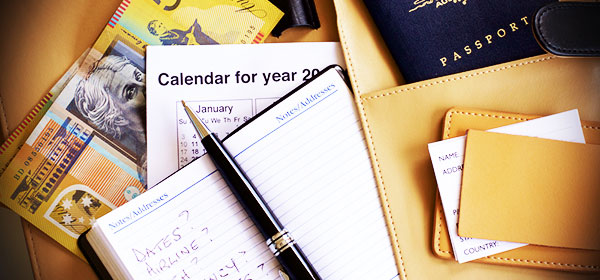Booking airfares can be a confusing business and Roger wonders when is the best time to book in order to snare the best fares. But as Lee Mylne discovers, there’s no easy answer.
Q. Roger
I’m trying to book flights online to go to Europe. I’ve noticed that the prices vary depending on the day or even time I’m researching flights. I’ve also noticed that the price of a flight increases the next time I view it. Why does this happen? And is there a better time to book online?
A. There’s no easy answer to this one, Roger. Airline ticket pricing is determined using a complex system called ‘yield management’. Obviously, an airline makes more money when the flight is full, so the aim is to maximise revenue by selling as many seats as it can at the full price.
For each flight, the airline has a set of available price levels – from the most expensive fully-refundable fare to the cheapest discounted non-refundable price. In the travel industry, these price groupings are called ‘buckets’ – you may have heard the term ‘bucket shops’ used to describe agencies that sell cheap fares. Then, the airline seats are allocated among the different ‘price buckets’.
Initial allocation of seats between the price buckets is based on data that indicates how well a certain flight usually sells, often determined by the time of year (i.e., if it’s a peak holiday season). As the seats on a flight sell, yield managers monitor and adjust the seat allocation. If sales are slow, some seats might be moved to lower-priced buckets and this will show up as a drop in price. But in most cases, prices rise the closer you get to the departure date as the cheaper seats sell out – and this is when you’ll see the price go up the next time you look.
Unfortunately, there’s no particular time of day or day of the week when you can be sure you’ll get the best price. Although airline yield managers are constantly looking at flight bookings from the time they become available for sale, they do increase their focus on a flight about three months before the departure date. Studies show that to start with, the cheapest price buckets are empty, and yield managers may move seats into those buckets a couple of months before the departure date if the flight is emptier than expected.
Two to three weeks before the flight date, the prices start increasing. This is also the time when one can find significant differences between price quotes, depending on where you look and what contract that booking agency has with the airline.
So, if you are planning to travel during a peak period (say, the European summer), it is generally better not to delay buying your ticket. The best strategy for booking within the last couple of weeks before the flight is to try getting quotes from several sources, including the airlines themselves or a website that allows you to compare the prices, such as Webjet, Kayak or Skyscanner.
Related articles:
Planning the perfect European trip
Are two one way tickets cheaper?

